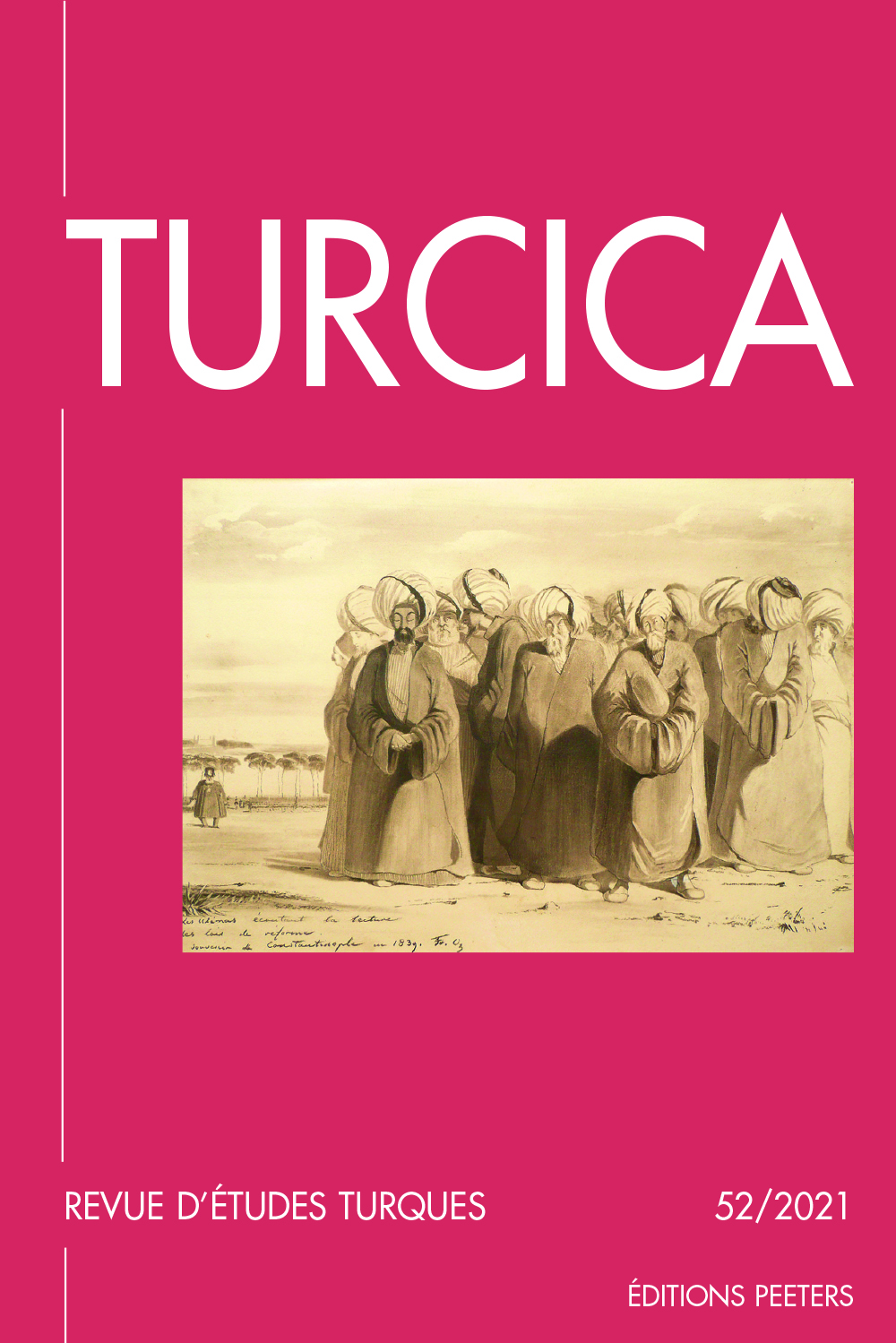 previous article in this issue previous article in this issue | next article in this issue  |

Preview first page |
Document Details : Title: 'Why would we be limberte?' Subtitle: Liberté in the Ottoman Empire, 1792-1798 Author(s): KARABIÇAK, Yusuf Ziya Journal: Turcica Volume: 51 Date: 2020 Pages: 219-253 DOI: 10.2143/TURC.51.0.3288389 Abstract : This article makes use of conceptual history and focuses on the Ottoman concept of serbestiyet to understand facets of the Ottoman reaction to the French Revolution. It argues that the transformation of the concept of liberté had connections to the transformation of serbestiyet before the French Revolution and the two concepts acquired a new revolutionary meaning simultaneously following the Revolution. The Ottoman reaction to the Revolution turned defensive with Bonaparte’s Italian Wars and serbestiyet became a seditious concept that put Ottoman ruling elites on alert after 1797. An important part of the argument of this article is the Greek connection. The Greek concept eleftheria (ελευθερία) followed a similar trajectory in late 18th century and was in touch with Ottoman Turkish and French transformations. The rise of revolutionary ideologies among Greek speaking Orthodox populations and Bonaparte’s propaganda in the Peloponnese connected these developments. Faced with the possibility of revolutionary movements among Greek speaking Orthodox populations, the Ottoman government and the Orthodox Patriarchate of Constantinople formed a defensive alliance of order. This article explores how the amalgam of meanings that were attached to the concepts of liberté, serbestiyet and eleftheria were central to this alliance. Cet article utilise l’histoire des concepts et se concentre sur le concept ottoman de serbestiyet afin d’examiner les différents aspects de la réaction ottomane à la Révolution française. Il fait valoir que la transformation du concept de liberté avait des liens avec celle du serbestiyet avant la Révolution française; les deux concepts ont parallèlement acquis un nouveau sens révolutionnaire après la Révolution. La réaction ottomane à la Révolution est devenue défensive avec les guerres italiennes de Bonaparte et serbestiyet est devenu un concept séditieux qui a mis les élites ottomanes en alerte après 1797. Une partie importante de la question abordée par cet article est la connexion grecque. Le concept grec d’eleftheria (ελευθερία) a suivi une trajectoire similaire à la fin du XVIIIe siècle et a été en contact avec les transformations turques ottomanes et françaises. Ces développements ont été reliés par l’émergence des idéologies révolutionnaires parmi les orthodoxes grécophones, et par la propagande de Bonaparte dans le Péloponnèse. Face à la possibilité de mouvements révolutionnaires parmi les populations orthodoxes grecques, le gouvernement ottoman et le Patriarcat orthodoxe de Constantinople ont formé une alliance d’ordre défensif. Cet article explore comment l’amalgame de significations attachées aux concepts de liberté, serbestiyet et eleftheria se trouvait au coeur de cette alliance. |
 |


